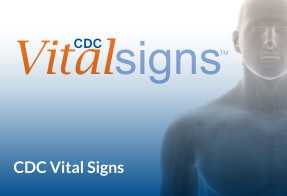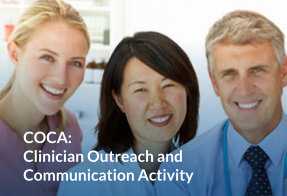December 2012 VSTH Meeting Speakers

HIV Among Youth in the US—Protecting a Generation
Tuesday, December 4, 2012
2:00–3:00 pm (EDT)
Speakers' Biographies
 Linda J. Koenig, PhD, MS
Linda J. Koenig, PhD, MS
Associate Deputy Director for Behavioral and Social Science, Division of HIV/AIDS Prevention (DHAP), National Center for HIV, Viral Hepatitis, STD and TB Prevention (NCHHSTP), Centers for Disease Control and Prevention (CDC)
Linda J. Koenig, PhD, MS, is the associate deputy director for Behavioral and Social Science in the Division of HIV/AIDS Prevention (DHAP) within CDC’s National Center for HIV, Viral Hepatitis, STD and TB Prevention (NCHHSTP), where she provides support to senior leadership on the development, implementation, and management of DHAP’s behavioral and social science research and program activities.
Prior to joining the Office of the Director, Dr. Koenig was a senior scientist in the DHAP Prevention Research Branch and the Epidemiology Branch, where she also served as assistant chief for Behavioral Science in the Mother-Child, Pediatric and Adolescent Studies Section, and chief of the Social and Behavioral Studies Section. Dr. Koenig has served as the project officer for five multi-site studies addressing behavioral and social-developmental issues for people living with HIV, as well as a structural HIV prevention intervention for urban youth.
Dr. Koeing led the development of two behavioral interventions: the Project HEART adherence intervention (a CDC-identified evidence-based intervention), and the Adolescent Impact intervention for HIV-positive youth. She has authored or coauthored more than 70 scientific papers, chapters, and reports, and edited a groundbreaking volume on child sexual abuse and adult sexual risk behavior. Dr. Koenig has mentored many young investigators and served on numerous cross-agency workgroups addressing issues of adherence, gender-based violence, and emergency mental health. Her service commendations include the Department of Health and Human Services Secretary’s Distinguished Service Award, the inaugural Behavioral and Social Science Working Group’s Award, honoring innovation and leadership in the development of behavioral and social scientists, NCHHSTP’s Director’s Recognition Award, and nomination for the CDC Charles C. Shepard Award for Excellence in Science (Prevention and Control).
A licensed psychologist, Dr. Koenig received her master of science degree and doctorate degree in clinical psychology from Northwestern University. Following a clinical internship at Ohio State University School of Medicine, she completed a National Institute of Mental Health postdoctoral fellowship at Stanford University. Prior to joining CDC in 1997, she was a psychology professor at Emory University, where she taught undergraduate and graduate courses, conducted and supervised research, and served as director of clinical training.
Howell Wechsler, EdD, MPH
Director, Division of Adolescent and School Health, NCHHSTP
Howell Wechsler, EdD, MPH, serves as director of the Division of Adolescent and School Health (DASH). He supervises the management of DASH's three surveillance systems: Youth Risk Behavior System, School Health Policies and Programs Study, and School Health Profiles. His work encompasses research and evaluation studies, development and dissemination of tools to help schools implement evidence-based policies and practices, and the provision of funding and technical assistance for state and local education agencies as well as national, nongovernmental organizations.
Prior to serving as director for DASH, Dr. Wechsler was chief of the Research Application Branch in DASH and served as the division′s obesity prevention specialist. Dr. Wechsler was the lead author of CDC′s “Guidelines for School Health Programs to Promote Lifelong Healthy Eating,” and also led the development of the “School Health Index: A Self-Assessment and Planning Guide.”
Dr. Wechsler earned a doctorate in health education from Teacher′s College, Columbia University, a master′s degree in public health from Columbia University, and a bachelor′s degree in journalism from Northwestern University. He entered the field of public health during his service as a Peace Corps volunteer in Zaire.
 Timothy Kordic, MA
Timothy Kordic, MA
Program Manager, HIV/AIDS Prevention Unit, Health Education Programs Department of the Los Angeles Unified School District (LAUSD)
Timothy Kordic, MA, is the program manager for the HIV/AIDS Prevention Unit in the Health Education Programs Department of the Los Angeles Unified School District (LAUSD) – the second largest school district in the nation. In this role, he supports the district’s comprehensive sexual health programming. Kordic is responsible for ensuring district compliance with the California Department of Education’s Comprehensive Sexual Health and HIV/AIDS Prevention Education Act. He is also responsible for establishing and maintaining partnerships between the school district and community-based organizations for HIV/STD linkage and referral services for LAUSD youth. Kordic coordinated the biennial Youth Risk Behavior Survey for the Los Angeles area and has monitored trends in youth sexual risk behaviors.
Prior to his role in the HIV/AIDS Prevention Unit, Kordic spent 10 years as a middle-school teacher in the LAUSD. Additionally, he has worked for other youth-serving organizations, including the Los Angeles Metro YMCA and the City of Los Angeles Department of Recreation and Parks.
Kordic has provided expertise on sexual health programs from a school district’s perspective at several national conferences and events, including the 2012 Annual National Conference on Health Communication, Marketing, and Media, and the Sex: Tech 2012: New Media, Youth, and Sexual Health conference. He recently coauthored an article in the September 2012 issue of Pediatrics, entitled, “Sexually Explicit Cell Phone Messaging Associated With Sexual Risk Among Adolescents.”
- Page last reviewed: September 21, 2016
- Page last updated: September 21, 2016
- Content source:


 ShareCompartir
ShareCompartir



